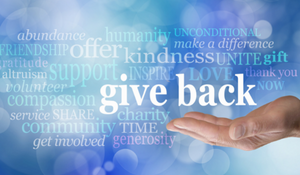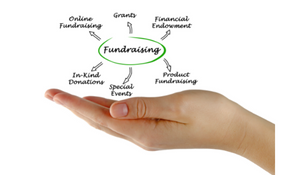In his new book, Effective Fundraising, Harvard Business School professor emeritus, F. Warren Mcfarlan, identifies the board of trustees as nonprofit's core fundraising asset. The book outlines the broad range of roles trustees can play in contributing to the crucial function of fundraising. While some rare souls are enthusiastic about directly soliciting gifts, Professor Mcfarlan says, others may be more effective at expanding networks, making introductions, lending credibility, or providing the coaching and context that contribute to a successful "close".
GVT Admin
Recent Posts
Topics: Nonprofit General, nonprofit sustainability, nonprofit funding
Casework can be very rewarding. So naturally, as you study hard and get through tough exams and finally get to practice—you’re going to be pretty excited. And you should be because you’ll be making a real difference in people’s lives and helping them turn things around on a daily basis.
But you’ll soon find out that social work is one of the toughest jobs out there. Not only because there are real people and emotions involved, but also because it’s demanding work.
From long working hours to massive caseloads, here are a few ways to manage your early years as a caseworker.
Topics: caseworkers, what social workers do
3 Must-Have Features in Your Case Management Software
In today’s current environment, case management software has become a need, not a want for any human service organization. The pandemic has put an unprecedented amount of stress on these organizations. Not only has it increased the number of cases, but it has shed light on the need for new flexibility in the workforce. All during a time when America’s caseworker shortage remains unaddressed.
Case management software can help streamline work for your agency, allowing you to serve more clients and cases than before. And luckily, there are several options out there. However, it's crucial to choose a software solution that is not only efficient but can also protect your data and cater to your organization's changing needs.
Here are a few features to look out for.
Nonprofits exist to assemble assets in support of humanitarian missions. Financial assets are the most obvious but human assets are the most essential. Without hordes of volunteers, many of our most iconic nonprofits would simply disappear.
3 Surprising Facts Everyone Should Know About Social Workers
Social workers are gifted and dynamic individuals that are constantly on a mission to make the world and our societies better spaces for everyone. While their work can be very rewarding, it’s also extremely challenging. But one of their finest qualities is that they’re incredibly resilient and are able to handle all kinds of cases involving addictions, abuse, trauma, mental illness, and other significant issues in their clients’ lives.
Topics: social workers, what social workers do
3 Common Mistakes Nonprofits Make in Their Early Years
Nonprofits mostly start with great ideas and big hearts trying to address a problem nobody else seems to care about. From Doctors Without Borders to Feeding America, Americares Foundation, Direct Relief, and United Way Worldwide, there are countless examples of large, successful nonprofits around us—but even these were only just ideas at some point.
Many nonprofits may have started around the same time as these successful ones, but we don’t even know about them—probably because they’ve ceased to exist.
As a budding nonprofit, here’s what you need to avoid.
Turning the calendar page to welcome a "new" year is an ancient time-keeping practice. Celebrating a "new" year is still the perfect opportunity to pause and take stock of life's evolving circumstances and prepare our minds and hearts for the task at hand.
Topics: Social Services Industry News, Nonprofit General, social issues
COVID-19 and Mental Health-The Role of Social Services Organizations
It’s been estimated that globally, around 76 million people have been diagnosed with anxiety disorders due to the pandemic. Many of these people were healthy individuals with no previously diagnosed mental health issues. Others were already diagnosed with mental health issues, but the virus served as a trigger for their disorders and made them worse.
Nonetheless, social workers across the US have played an important role in ensuring that people suffering from mental health issues during the pandemic have the necessary psychological support to survive the pandemic.
Topics: mental health, human services software, Covid-19/Pandemic
Tips for Investing in A Case Management Solution For Your Nonprofit
If you work in a non-profit or head one, you’re probably well aware of how hectic things can get. From managing fundraising to juggling large numbers of cases at a time, there’s too much to do all the time, and you probably end up leaving things for the next day—pretty much every day.
If this has been happening for a while now and you have a backlog of epic proportions, it may be time to invest in a non-profit case management software.
But no two non-profit software are the same, so make sure you assess your organization’s needs well and pick a software solution that works best for you.
Here’s how to go about it.
Another whirlwind of a year is coming to an end, and sadly we still haven’t said a final goodbye to the pandemic.
But there’s something festive and warm about December that even coronavirus hasn’t been able to touch. In fact, if anything, the pandemic has brought people’s hearts together like never before, and the giving spirit is stronger than ever.
This is why it’s time to seize the opportunity and put your best foot forward for planning the year-end campaign to ensure your organization has a great start to 2023! That’s right 2023!
Here are a few tips to get you started for your 2022 year-end fundraising campaign.
Topics: Nonprofit General, nonprofit funding











